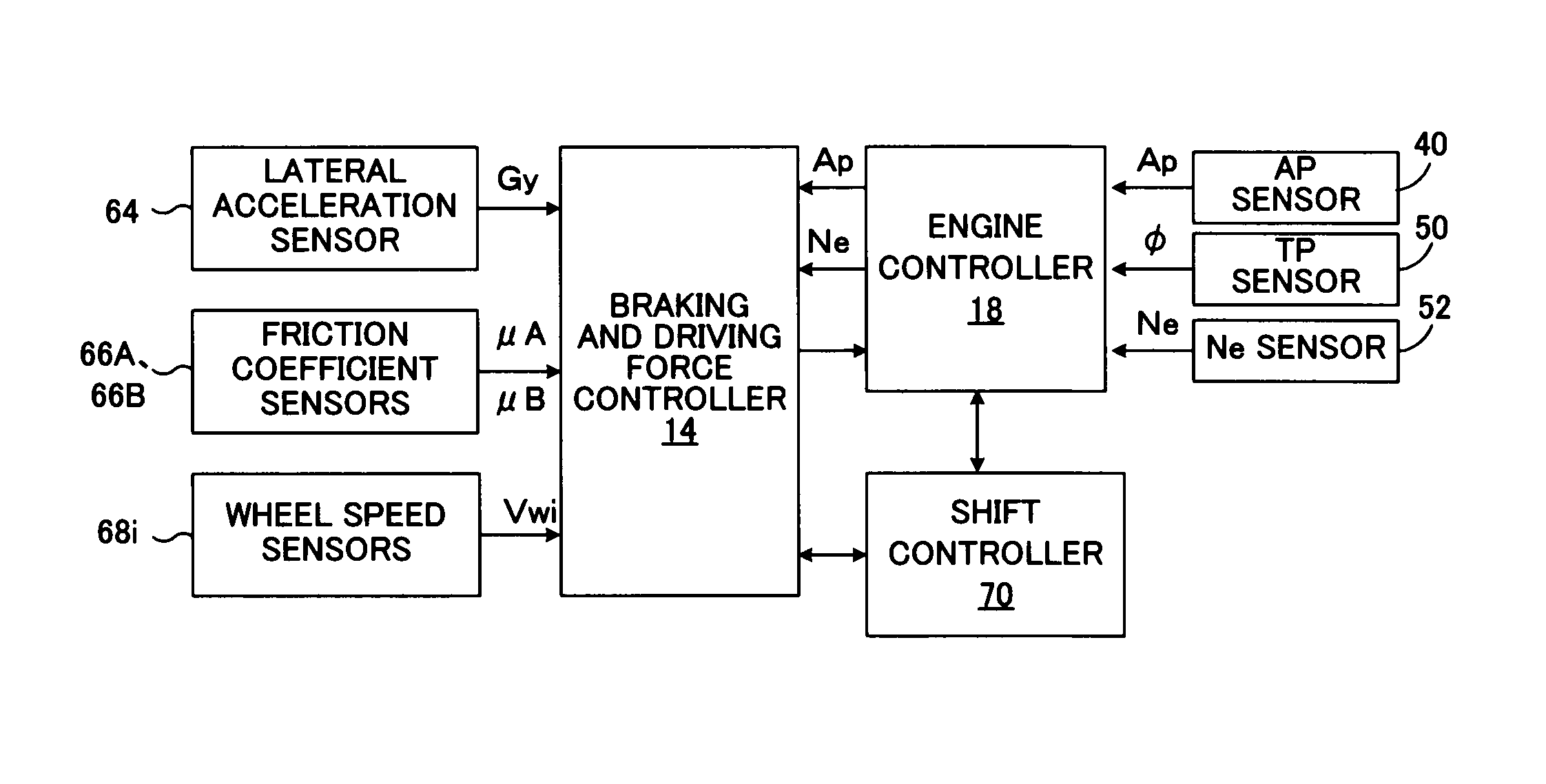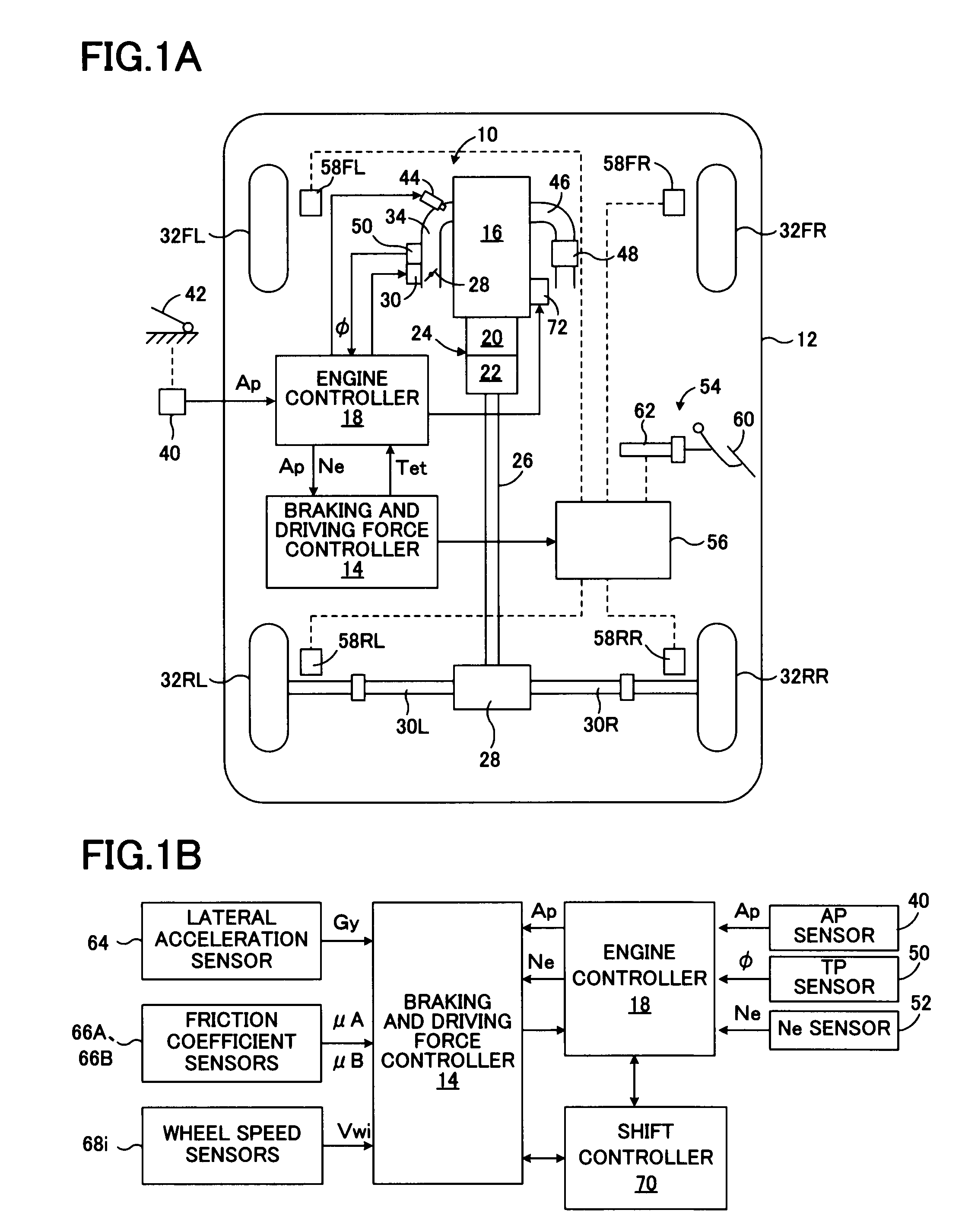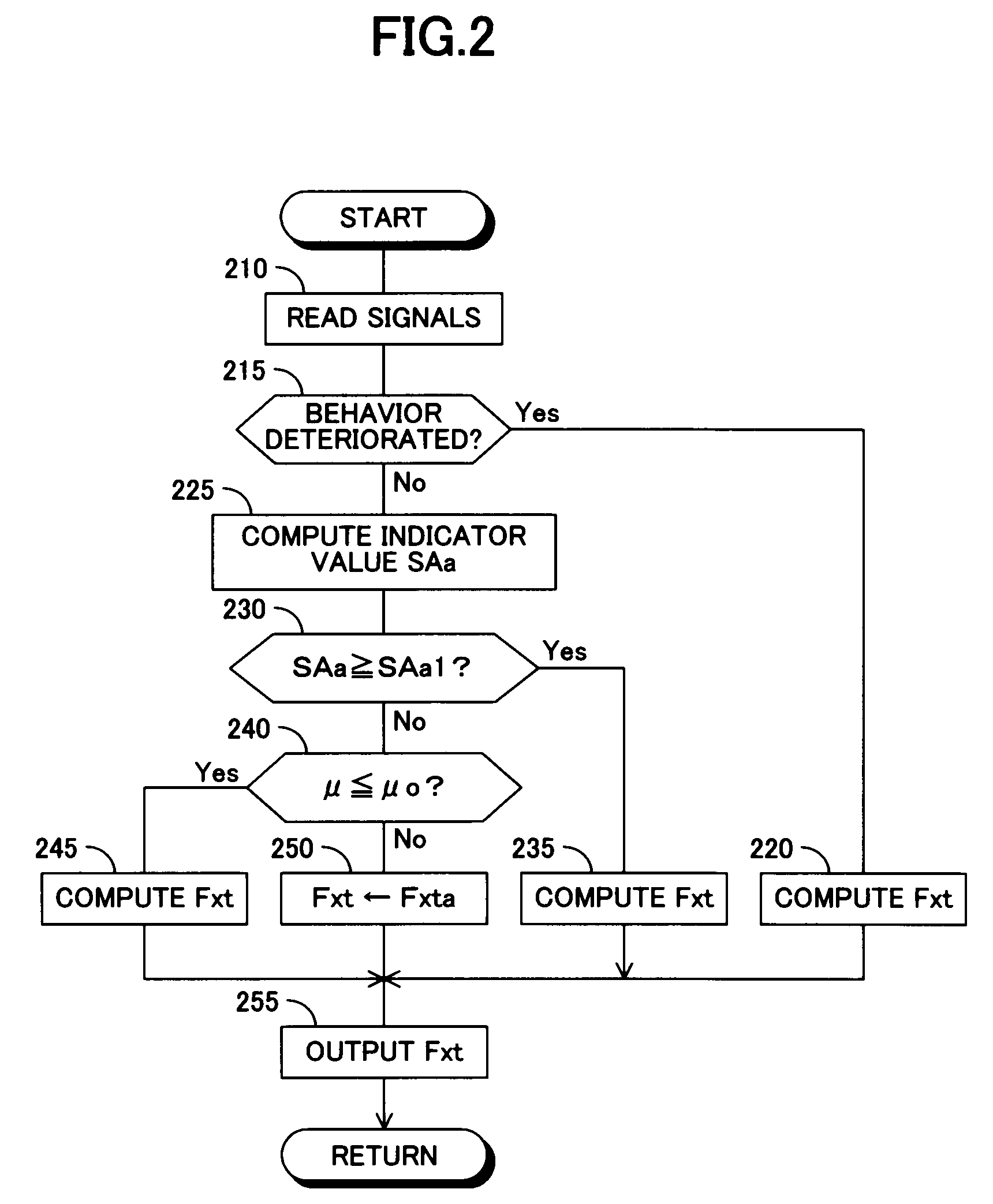Driving force controller for vehicle
a technology for driving force controllers and vehicles, applied in the direction of electrical control, instruments, computing, etc., can solve the problems of inability to continuously delay the ignition timing, and restricted control of delaying the ignition timing, so as to reduce the driving force of vehicles, avoid the effect of increasing the temperature of exhaust gas of engines and the resultant deterioration of exhaust gas purification catalysts
- Summary
- Abstract
- Description
- Claims
- Application Information
AI Technical Summary
Benefits of technology
Problems solved by technology
Method used
Image
Examples
first embodiment
[0080]FIG. 1A is a schematic diagram showing a first embodiment of a vehicular driving force controller according to the present invention applied to a rear-wheel drive vehicle, and FIG. 1B is a block diagram of a control system thereof.
[0081]In FIG. 1, a driving force controller 10, which is mounted on a vehicle 12, includes a braking and driving force controller 14 that controls traveling motion of a vehicle by controlling braking and driving forces of the vehicle and the wheels; and an engine controller 18 that controls a spark ignition engine 16. The driving force of the engine 16 is transmitted to a propeller shaft 26 via an automatic transmission 24 which includes a torque converter 20 and a transmission 22. The driving force of the propeller shaft 26 is transmitted to left-rear and right-rear wheel axles 30L and 30R by a differential 28, whereby left and right rear wheels 32RL and 32RR, which are drive wheels, are rotated and driven.
[0082]Meanwhile, left and right front wheel...
second embodiment
[0129]FIG. 9 is a flowchart showing the vehicular target driving force and ignition timing correction control routine, which is achieved by the braking and driving force controller 14 in a second embodiment of the vehicular driving force controller according to the present invention. In FIG. 9, the same steps as those shown in FIG. 3 are denoted by the same step numbers as in FIG. 3.
[0130]In the present embodiment, the individual steps of the vehicular target driving force computation routine and the throttle opening and ignition timing control routine are executed in the same manner as in the above-described first embodiment. Although, steps 310 to 320, steps 335 to 345, and steps 355 to 390 are also executed in the same manner as in the above-described first embodiment, a step corresponding to step 350 in the first embodiment is omitted.
[0131]As shown in FIG. 9, when a positive determination is made in step 315, then in step 330, the target driving force Fxt1 to be achieved throug...
third embodiment
[0134]FIG. 11 is a flowchart showing the vehicular target driving force and ignition timing correction control routine, which is achieved by the braking and driving force controller 14 in a third embodiment of the vehicular driving force controller according to the present invention. In FIG. 11, the same steps as those shown in FIG. 3 are denoted by the same step numbers as in FIG. 3.
[0135]Also in the present embodiment, the individual steps of the vehicular target driving force computation routine and the throttle opening and ignition timing control routine are executed in the same manner as in the above-described first embodiment. Steps 310 to 345, and steps 380 to 390 of the vehicular target driving force and ignition timing correction control routine of the present embodiment are also executed in the same manner as in the above-described first embodiment. However, steps 360 and 365 are executed instead of steps 350 and 355 in the above-described first embodiment, respectively.
[0...
PUM
 Login to View More
Login to View More Abstract
Description
Claims
Application Information
 Login to View More
Login to View More - R&D
- Intellectual Property
- Life Sciences
- Materials
- Tech Scout
- Unparalleled Data Quality
- Higher Quality Content
- 60% Fewer Hallucinations
Browse by: Latest US Patents, China's latest patents, Technical Efficacy Thesaurus, Application Domain, Technology Topic, Popular Technical Reports.
© 2025 PatSnap. All rights reserved.Legal|Privacy policy|Modern Slavery Act Transparency Statement|Sitemap|About US| Contact US: help@patsnap.com



